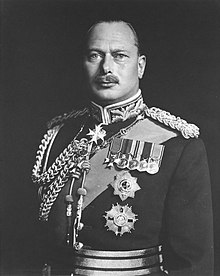Eighty years ago a Chamberlainite hardliner sabotages his own motion of censure on Churchill
Churchill faced the most severe challenge to his wartime government when Chamberlainite hardliner Sir John Wardlaw-Milne tabled a vote of censure in the House of Commons over the conduct of military operations in North Africa; in practice Churchill was being taken to task for the uninterupted string of defeats that Britain had suffered since Japan entered the war, together with discontent at his supposedly autocratic style of government. His critics were scoring good points against him, but then Wardlaw-Milne made an insane suggestion for a way in which Churchill's power could be diluted: the Duke of Gloucester, the King's brother and a professional soldier, should be made commander-in-chief. Gloucester was notoriously stupid and considered competent to command an infantry company and no more although he held the active rank of Lieutenant-General. Churchill was observed to smile and the heart went out of the debate. The vote was less crushing to Churchill's opponents than the January no-confidence vote: 25 MPs supported the motion and 476 opposed it but political support for the government had turned an important corner.
After
falling back into Egypt from their defeat at Mersa Matruh the Eight
Army under Claude Auchinenleck made a stand against Rommel's advance at
an obscure railway halt. It was called El Alamein.
In early June the Germans had renewed their attack on Sevastopol in the Crimea which they had besieged since the early months of Barbarossa. They could take full advantage of aerodromes only 70km from the city to mount intensive air support operations. The Luftwaffe also operated against Soviet shipping resupply although the Germans made an unusual request to their Italian allies for military help in view of the the well-known success of the Regia Marina's highly efficient MAS light boat forces. Gradually the garrison was worn down and the city fell; the Soviet commanders were evacuated at the last minute. A delighted Fuehrer promoted the Wehrmacht commander Erich von Manstein to Field Marshal.
US aircraft bombed Europe for the first time in the war when six A-20s joined the same number of RAF aircraft in bombing a German airbase in the Netherlands. One was severely damaged but managed to regain a base in Britain; its pilot was promoted and awarded the Distinguished Service Cross. Much publicity was given to the raid on the symbolic date of July 4 but none to the fact that two of the American aircraft failed to return.



Comments
Post a Comment